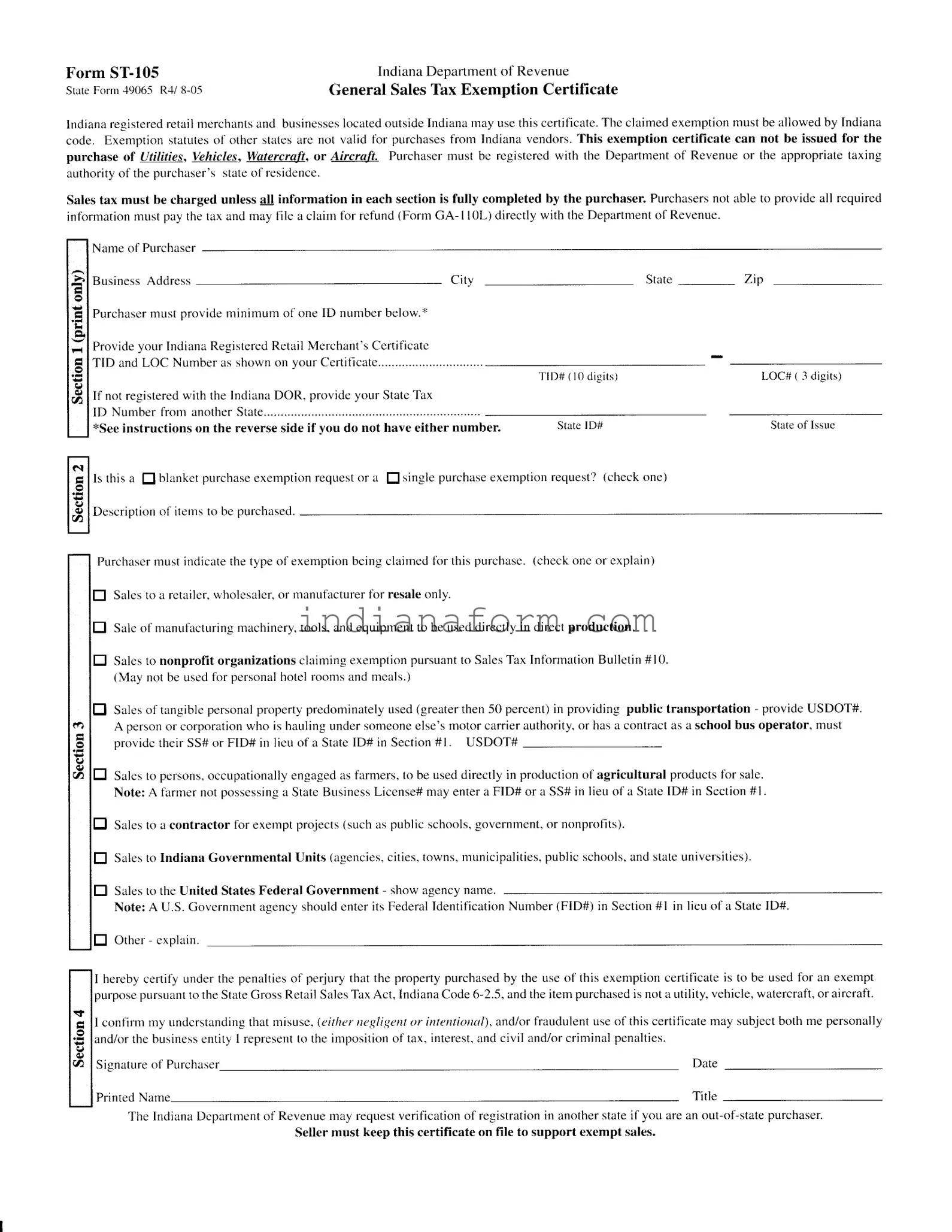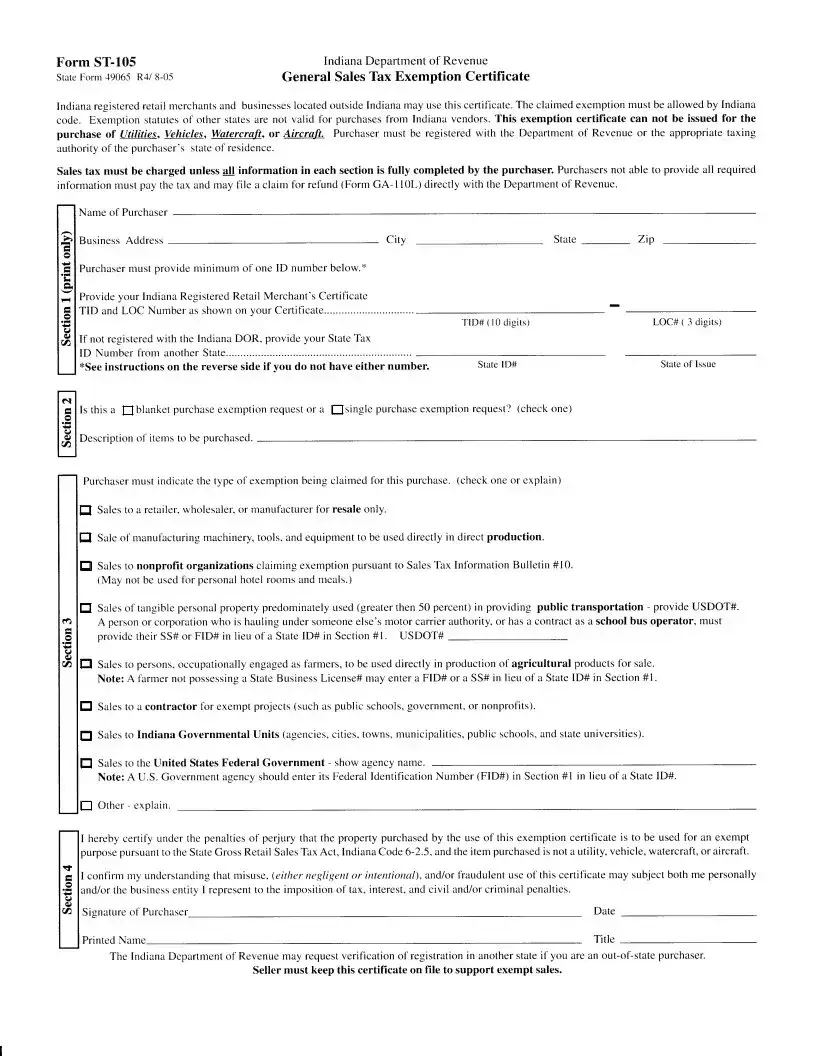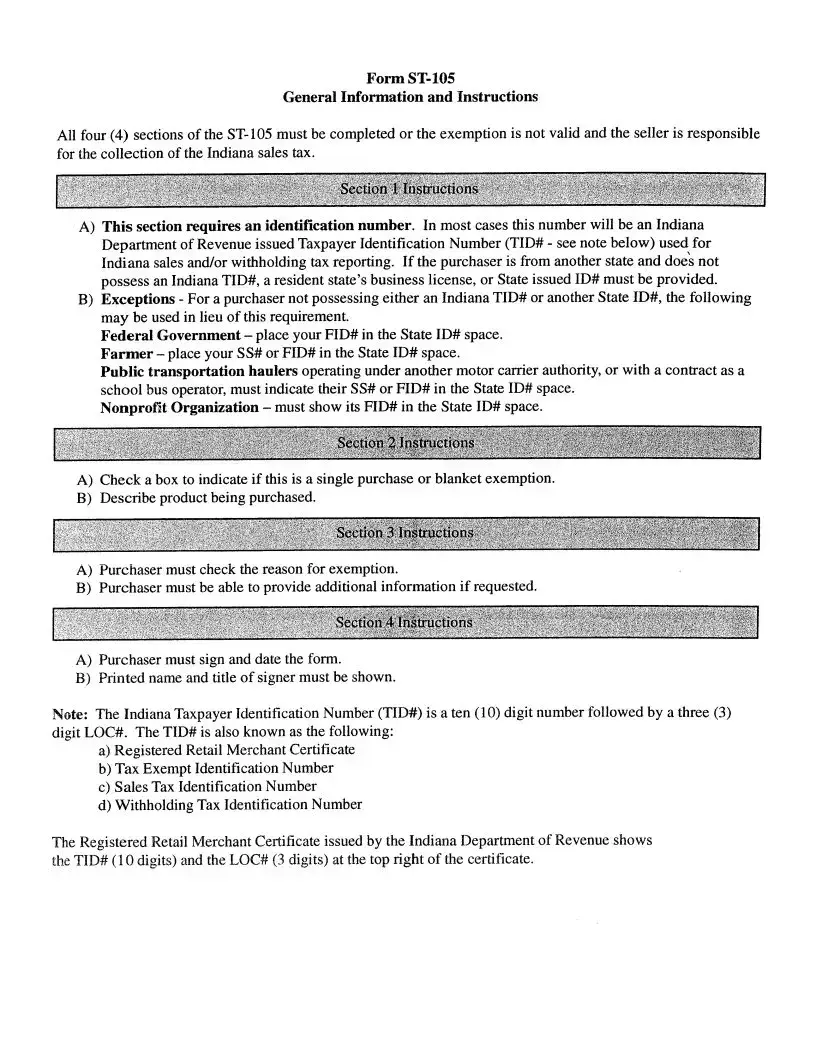What is the Form ST-105 and who uses it?
The Form ST-105 is the General Sales Tax Exemption Certificate used in Indiana. It is employed by Indiana-registered retail merchants and businesses located outside Indiana. This form allows entities to make tax-exempt purchases provided the exemption is allowed under Indiana code. Note that the claimed exemption must adhere to Indiana’s stipulations, as exemptions from other states are not valid for purchases from Indiana vendors.
Can the Form ST-105 be used for all purchases?
No, the Form ST-105 cannot be issued for the purchase of utilities, vehicles, watercraft, or aircraft. These types of purchases are excluded from the exemptions covered by this certificate.
What information is required to complete the Form ST-105?
To properly complete the Form ST-105, all sections of the form must be filled out thoroughly. This includes providing a qualified identification number. If the purchaser is registered with the Indiana Department of Revenue (DOR), they will provide their Indiana Registered Retail Merchant's Certificate Number (TID and LOC Number). If not registered in Indiana, the purchaser should provide their State Tax ID Number from another state. Details about the purchase, including whether it is a single or blanket purchase and the specific type of exemption being claimed, are also required.
What happens if I can't provide all the required information on the ST-105?
If a purchaser cannot provide all the necessary information on the Form ST-105, sales tax must be charged on the purchase. However, the purchaser may then file a claim for a refund (using Form GA-110L) directly with the Indiana Department of Revenue.
Are there exceptions to the identification number requirement?
Yes, in cases where a purchaser does not possess either an Indiana TID# or another State ID#, alternate identifiers may be used. Federal Government buyers can use their FID#; farmers have the option of providing SS# or FID#; public transportation haulers operating under another’s authority, or as a school bus operator, can also use SS# or FID#; and non-profit organizations should provide their FID# in the appropriate section.
How does one distinguish between a single purchase and a blanket exemption on the ST-105?
On the Form ST-105, the purchaser must check the appropriate box to indicate whether the exemption request is for a single purchase or is a blanket exemption. A single purchase exemption relates to a one-time purchase, while a blanket exemption covers multiple purchases over time.
What types of exemptions can be claimed using the ST-105?
The ST-105 allows for several types of tax exemptions. These include purchases by retailers, wholesalers, or manufacturers for resale; purchases of manufacturing machinery and equipment; purchases by non-profit organizations; items used predominantly in public transportation; agricultural production items by farmers; purchases by contractors for exempt projects; purchases by Indiana governmental units or the United States Federal Government; among other specific exemptions provided under Indiana law.
What is the penalty for misuse of the Form ST-105?
Misuse, whether negligent or intentional, or fraudulent use of the Form ST-105, may subject the purchaser and/or the business entity represented to the imposition of tax, interest, and possibly civil and/or criminal penalties under the penalties of perjury clause of the Indiana Code 6-2.5.
Is it necessary for the seller to keep a copy of the completed ST-105?
Yes, the seller must keep the completed Form ST-105 on file to support exempt sales. This documentation serves as evidence of due diligence in complying with Indiana sales tax laws and is crucial for audit purposes.



